- Home
- Patricia Briggs
Raven's Shadow rd-1 Page 28
Raven's Shadow rd-1 Read online
Page 28
Hennea had certainly impressed a few people with her freeing of Jes. The whole Rongier clan, at least those present at the small gathering in front of Benroln’s tent, were treating Hennea as if she’d grown a third head.
Or maybe Hennea was just sitting too close to Jes.
Jes had no intention of forgiving anyone for imprisoning him. He lurked in a wolfish form only half-revealed by the flickering light of the bonfire. It might have been easier if he’d chosen to be wolf in whole, but the wolf’s muzzle and eyes in an otherwise human body was particularly disturbing. Low growls told everyone that he was unhappy with them all. Seraph rather thought the shape was an illusion, but it was difficult to tell.
Brewydd had brought Lehr with her. He looked tired, but the sickness had faded from his eyes. When the old woman griped at him and ordered him to move her camp chair three times before she sat in it, he actually grinned.
Benroln came out of his tent at last, and looked around to see that everyone was there. He sat down directly opposite Seraph and nodded his head at her: so the meeting would begin with her comments.
Unhappy people, all, she thought, glancing around at the faces of the clan.
“We could spend the night throwing accusations and debating ancient history,” said Seraph. “If you were not honest with what you wanted of us, well then, we were not entirely honest either.”
“I’d like to rage at you, and tell you how wrong what you’ve been doing is, but you already know what I think.” She took a deep breath. “So I’m going to tell you the things that we didn’t tell you when you invited us to journey with you to Taela. It will take a while, and I am no Bard. I ask for your patience just the same.”
“I am Seraph, Raven of Isolda the Silent and wife to Tieragan of Redern, Owl in his own right, though he has not a drop of Traveler blood…”
By the time she brought them into the present she was hoarse. Benroln refilled her cup and urged it upon her solicitously—as if they had not just fought a battle over a farmer’s field.
As clan leader, it was his place to respond, so everyone sat silently while he considered her story.
“This Path,” he said, “they have been taking our people for years and stealing their Orders?”
Seraph nodded.
“You have some of the stones?” asked Brewydd.
Seraph had thought the old Healer was asleep.
“Yes.”
“I’d like to see them,” Brewydd murmured. “Bring them here when we are done and we’ll sit in the Librarian’s home, you and I, Hennea and Benroln, and see just what evil the solsenti have wrought.”
“All right,” Seraph said and then changed the subject. “Tomorrow, my family and I will continue on to Taela where my husband is being kept.”
“You say your husband is Ordered,” said Isfain. “But he is a solsenti?”
“That’s right.”
“Could this Secret Path you told us about be the reason that the solsenti laws have become so stringent against us?” asked Kors.
Seraph thought that they could look to themselves and to other clans who had gone after gold rather than fighting evil for the cause of the antipathy solsenti had toward Travelers, but she wasn’t such a fool as to say so.
Benroln, unaware of Seraph’s thoughts, nodded intently. “It could be. If what we have heard tonight is true, this Path could be very powerful.” He nodded his head once more. “Then this is what we will do. Isfain, send out messages to the other clans we know of and warn them of this Path and their methods. See to it that they in turn pass the message on.” He waited until Isfain nodded. “Tomorrow we also strike out at speed for Taela.”
He turned to Seraph. “There are things that we can do to help. We have friends in Taela.”
Seraph looked at his eager face. “I would be very grateful for any help you can give,” she said.
Seraph was exhausted, but she found herself as unable to say no to the old Healer as everyone else was. Besides, she wanted to know what the Healer could tell her about the rings. So it was that she found herself inside the house of Rongier the Librarian with Hennea, Benroln, and Brewydd.
Rongier’s home had been larger and more prosperous than Isolda’s. His library had a table large enough to seat eight or ten people.
Seraph took the seat next to Brewydd and dumped the bag of rings on the table.
Brewydd hesitated and lightly fingered each ring before settling on an old ring set with a stone of rose quartz.
“Well,” she murmured, “how did they do that then? You told me that they took the Orders and bound them to a ring.”
“Right,” said Seraph. “That’s what Hennea said, and that’s what seems to have happened.”
“Indeed.” Brewydd put the ring down and pushed it away from her. Her hand was shaking a little. “So that’s one of the reasons,” she murmured.
“Reasons for what, Brewydd?” asked Benroln. He’d made no move to look closer at the rings.
“There were only ever so many Orders,” she said. “I don’t know the numbers, I’m not certain where to find an exact count of most of them—but there were only ever ten healers. One would die and another would be born. But now there are only six.” She pointed at the ring she’d been handling. “That one is one of the missing.”
“Do you mean to say that the Orders are… like a…” Seraph searched for a proper comparison.
“Like a suit of armor,” said Brewydd. “One that is fitted at birth and stays with you, grows to be a part of you until it is like your skin. When you die, the skin sloughs off and cleanses itself of everything that was yours—your scent, your shape, the sound of your voice. Then, once more only a suit of armor, it goes off and seeks the next person to fit itself to.”
She folded her hands and rested her chin on them. “The Orders don’t go to just anyone.” She nodded her head toward Seraph. “You would have been a mage even if you hadn’t been Raven. Your husband would still have sung. Benroln would have been one of those people who always seems to know when a bad storm is coming in. The Orders go where they will be welcomed.”
“So when they made these stones,” said Benroln somberly, “each ring was another Traveler born without an Order.”
Brewydd nodded her head. She looked at Hennea. “You said that the wizards of the Path, these Masters, find that they cannot use some of these. I believe that they took the Order too soon, that there are bits of personality still clinging to the stones. The only time I’ve ever seen something similar is when I had to deal with a Raven’s Memory.”
“A Raven’s Memory?” asked Benroln.
“A Raven’s Memory,” said Brewydd, “happens only when a Raven is murdered. A Raven can take the power that always comes with death and a part of himself to the Order and bind the result to a false life until it carries out vengeance against his murderer.”
“But it’s not only the Raven stones that…” Seraph’s voice trailed off because she wasn’t certain how to explain it.
“No.” Brewydd sorted out a half dozen rings. “Here is the Lark, a couple of Ravens, a Hunter and Bard, these all contain part of their last Order-Bearer. They’re bound, tied to the stones so they can’t act like Raven Memories—but I bet the wizards who tried to wear them got a rude surprise.”
“Do you know what to do with them?” asked Hennea.
“Not yet,” said Brewydd. “Do you mind if I keep these?” She indicated the jewelry.
“No,” said Seraph. “If you can figure out what to do with them, how to free the Orders, it is more than Hennea and I have managed.”
Brewydd nodded and collected the rings into Seraph’s bag. “Tell that boy of yours to come to my wagon tomorrow when we stop to camp,” she said.
“Lehr?” asked Seraph cautiously.
Brewydd nodded. “I know a few odd things about Hunters he might be interested in.” She got to her feet. “I know a lot more than I let on,” she said. “But I only share with those I like. Your boy was exha
usted and heartsick, not to mention tired of taking orders and angry with the whole of my clan—yet he still was courteous and gentle. I like him.” She glared at Benroln.
He got up off the chair with a crack of laughter. “I love you, old woman.” He leaned over and kissed her cheek. “I’m going to get some sleep before I fall over. You’ll want to keep the mermora until you’ve solved this puzzle with the rings, and you are welcome to it, Brewydd. Good night.”
Brewydd turned to Seraph. “I’m an honest woman, so I’ll tell you that I’m not used to learning wisdom from those younger than I. I thought that I had to convince him that what he was doing to earn gold was wrong. I never considered trying to find something else for him to do instead. Thank you.”
Seraph shook her head. “I’m afraid you have Hennea to thank for that.”
Hennea smiled and got up. “You’re welcome to any bits of wisdom I pick up. Now, I’m with Benroln; it’s time to sleep. Can I escort you to your wagon?”
Brewydd laughed and winked at Seraph. “I’ll say yes, only because that handsome young Guardian who’s been waiting outside will come, too.”
Seraph laughed, yawned, and left for their tent.
“Seraph, wake up,” Hennea’s voice was soft and disappeared into the dream.
“Mother,” murmured Jes.
At the sound, Seraph sat up and opened her eyes almost in the same motion. “Jes, are you all right?”
He smiled his sweet smile. “Fine, Mother, but you’re going to wake the camp.”
Seraph yawned and tried to find the reason they’d woken her up in what Jes had just said. It was still dark out and everyone except her was lying down. Hennea had a gentle grip on Seraph’s arm.
“You were having nightmares,” said Lehr, rolling on his side so he could see her more easily.
When he said it, she remembered. Tier had been sitting on a throne of oak, ash, and rowan while a spell was worked around him. He’d been playing one of the songs he played often at the tavern, though she couldn’t remember which one it was. She’d run to him, knelt at his feet, and set her head in his lap as she had sometimes when the nightmares had been so bad after her brother had died. But there had been something wrong. He’d kept playing, ignoring her entirely. Finally she’d reached up to touch the skin of his arm and screamed. His flesh had been warm, she could feel blood pulse under her fingertips, but she knew that he was dead.
Nervously she ran her fingers in her hair. “Thank you for waking me,” she said, lying down again.
“What did you dream of?” asked Hennea.
“I don’t remember,” Seraph lied. She had no talent for foreseeing, she reminded herself firmly. It had only been a dream.
She lay back and stared at the top of the tent. She knew that Jes and Lehr assumed they’d find Tier hale and whole and the only problem would be getting him out, but Seraph had too much experience to believe in happy endings.
He might be dead.
She’d never told Tier that she loved him. Never once.
She had done her best to turn herself into a good wife, tried to become the person he needed as helpmeet. She knew he’d assume that she’d never told him that she loved him because she didn’t.
He was wrong.
Tier felt guilty for so much: that she’d been forced to marry him, that she’d been so young. Their marriage had freed him from the burden of taking over the family bakery and he felt guilty about that, too. He’d gained his freedom and she’d lost hers, lost her chance to rejoin her people. If she’d ever told him that she loved him, he’d have told her that he loved her, too.
He’d have lied for her.
Tier was the most truthful person she knew. He’d have lied to her out of guilt, and she couldn’t abide that, so she’d never told him.
Dry-eyed, she stared at the tent ceiling and hoped that she’d get the chance to hear him lie to her.
CHAPTER 13
Phoran nervously caressed the stack of parchment on his bed. He had already carefully organized it, placing the one that would make his first bid for power fifteenth down. Far enough down that many of the Septs would have relaxed their guard, but not so far that they would have quit listening entirely.
A light tap at his door made him take three quick steps away from the bed. Then he realized that the bed was an odd place for formal documents, so he ran back, snatched them up, and placed them on his writing desk. He wouldn’t want anyone to think that he’d spent all day and most of the night going through them. Most of the Septs would think that he was merely tormenting Douver, the council secretary: everyone knew that Phoran couldn’t stand the worm.
The quiet tap sounded again. “Your Highness?” said the guard who stood his watch at the door to the Emperor’s bedchamber. “My lord, Avar, Sept of Leheigh, begs entrance.”
“Avar?” Phoran said distractedly. Now that he thought of it, the writing desk was an odd choice as well. He couldn’t remember ever actually sitting at it—something Avar would have noticed.
“Yes, Your Highness.”
“Yes, yes, let him in.” It was too late to change anything anyway.
The door opened and Avar made his entrance. “Phoran,” he said as soon as the door was closed behind him. “I’ve been looking for you since yesterday afternoon. Did you really take all the proposed laws and run off with them?”
Surprisingly, Phoran didn’t have a prepared reply. He hadn’t even thought about what Avar would say. Not that he didn’t care—but it didn’t seem as important anymore.
Avar misread his hesitation.
“Not that you didn’t have every right to—but you might have warned someone you intended to take a closer look. It wasn’t necessary to give poor Douver an anxiety attack.”
Phoran found himself smiling. “Wasn’t it? You’ll have to forgive me if I’ve forgotten that I could have just called the things into my review. I suspect everyone else has forgotten as well.”
A frown chased itself across Avar’s perfect brow. “What are you up to, my friend?”
“Do you know anything about the Secret Path?” It was an impulsive question born of years of trust, blind trust he was no longer certain he felt. But even after the question left his lips, Phoran didn’t regret it.
“The secret, secret club that everyone knows about?” asked Avar with a grin. “Where a bunch of young hotheads go to pretend they are villainous Travelers? My brother, Toarsen, and his tagalong, muscle-bound friend, Kissel, belong to it.”
Phoran walked back to his bed and perched on the end, offering a nearby padded bench to Avar with his hand. “Tell me everything you know.”
“Does this have something to do with taking the proposals?” asked Avar as he availed himself of the offered seat and leaned back against the wall.
“I don’t know,” said Phoran truthfully.
“Well then.” Avar put his head back and relaxed. “They choose young men of noble blood when they’re fifteen or sixteen and induct them in some sort of secret ceremony. They don’t pick a lot of boys—no more than five or ten a year. I don’t know what they do at the ceremony—but my brother carried bruises from it for a week or more. The people they choose are usually the ones who are… well, problems for their families.”
He looked at Phoran a moment, then sighed. “I know they had something to do with that mess last year when some young thugs destroyed the weavers’ market. I saw Toarsen coming home in the wee hours of the morning, dead drunk with a hatchet in his hand. I should have said something, but”—he shrugged ruefully—“he’s my brother.”
“Do you know any of the older members?” asked Phoran. “The Raptors?”
“Some,” answered Avar with a quick grin. “The ones my brother gripes the most about. The council leader—the Sept of Gorrish is one of them and Telleridge is another. My father was—I think that’s how my brother was selected.”
Phoran closed his eyes and thought. “Didn’t the Weavers’ Guild file a complaint against Gorrish just befor
e the market was destroyed? They dropped it because he was instrumental in getting funds to help them rebuild it.”
“You’re right,” said Avar in an arrested voice. “I never thought to look for a deeper motive. I’ve always thought of the Secret Path as a game for boys who are at loose ends.”
“I have heard that you cannot be an heir to a Sept and belong to the Path,” said Phoran.
“Gorrish’s father and three older brothers died in the plague that hit the Empire about twenty years ago,” said Avar. “He’s not the only younger son who has inherited.” He smiled. “My own father was a second son.”
Phoran had a terrible thought. Maybe it was because he’d just spent the night talking to a bard that he’d thought of the old story of the Shadowed. How the first magic the Shadowed had loosed was plague. Maybe it was all the talk of magic—or maybe it was his current affliction of Memory. “How many of those second and third sons, or cousins who inherited a Sept were members of the Path?” he asked.
“I don’t know exactly—I was about four at the time, Phoran. The younger sons who inherited unexpectedly… oh, Seal Hold, Telleridge, Jenne, and a few others. You aren’t going to tell me that the Secret Path is responsible for the plague, are you?” Avar shook his head. “A lot of people died, Phoran. Most of them weren’t Septs with heirs who happened to be members of the Secret Club.”
“Doubtless, you’re right.” Phoran smiled and changed the subject. “I am calling a Council Seating for tomorrow,” he said.
“You are?” asked Avar, surprised into insult.
Phoran smiled at him grimly. “It may have become usual, since my uncle died, for Gorrish to call the Seat, but it is the imperial prerogative he uses. I am calling it, and I’d like you to deliver the messages. See if you can convince them that it’s just a silly whim of mine—that I said something about being bored.”
Avar stared at him for a long time, then nodded his head. “I’ll do that. Tell me what time you’d like to meet.”

 Wolfsbane
Wolfsbane When Demons Walk
When Demons Walk Cry Wolf
Cry Wolf On the Prowl
On the Prowl Iron Kissed
Iron Kissed Hunting Ground
Hunting Ground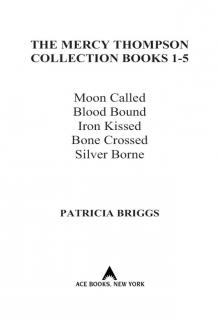 Patricia Briggs Mercy Thompson: Hopcross Jilly
Patricia Briggs Mercy Thompson: Hopcross Jilly Burn Bright
Burn Bright Silver Borne
Silver Borne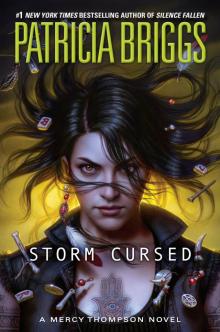 Storm Cursed
Storm Cursed Shifting Shadows
Shifting Shadows Frost Burned
Frost Burned River Marked
River Marked Silence Fallen
Silence Fallen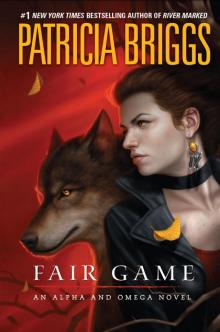 Fair Game
Fair Game Moon Called
Moon Called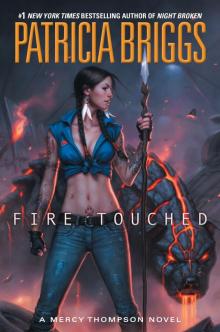 Fire Touched
Fire Touched Dead Heat
Dead Heat Blood Bound
Blood Bound Dragon Bones
Dragon Bones Night Broken
Night Broken The Hobs Bargain
The Hobs Bargain Ravens Shadow
Ravens Shadow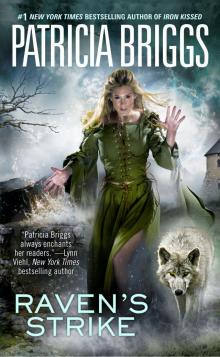 Ravens Strike
Ravens Strike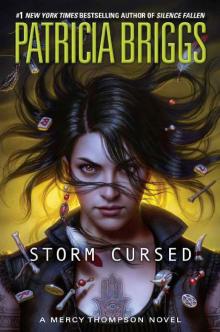 Storm Cursed (A Mercy Thompson Novel)
Storm Cursed (A Mercy Thompson Novel) Bone Crossed
Bone Crossed Dragon Blood
Dragon Blood Smoke Bitten: Mercy Thompson: Book 12
Smoke Bitten: Mercy Thompson: Book 12 Smoke Bitten
Smoke Bitten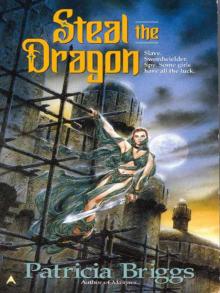 Steal the Dragon
Steal the Dragon 0.5 On The Prowl (alpha and omega)
0.5 On The Prowl (alpha and omega)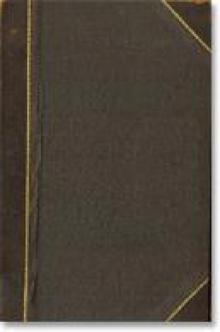 Alpha and Omega
Alpha and Omega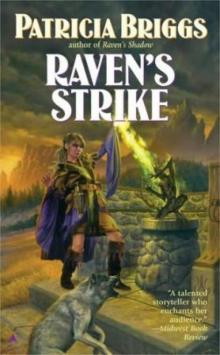 Raven's Strike rd-2
Raven's Strike rd-2![[Mercy 03] - Iron Kissed Read online](http://i1.bookreadfree.com/i/03/24/mercy_03_-_iron_kissed_preview.jpg) [Mercy 03] - Iron Kissed
[Mercy 03] - Iron Kissed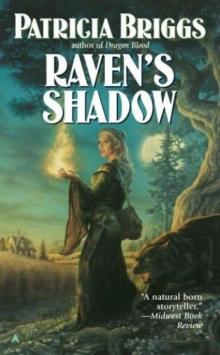 Raven's Shadow rd-1
Raven's Shadow rd-1 Frost Burned mt-7
Frost Burned mt-7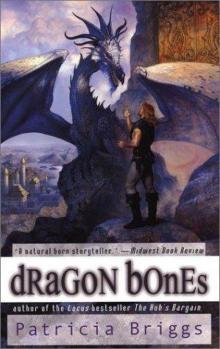 Dragon Bones h-1
Dragon Bones h-1 Shifting Shadows: Stories from the World of Mercy Thompson
Shifting Shadows: Stories from the World of Mercy Thompson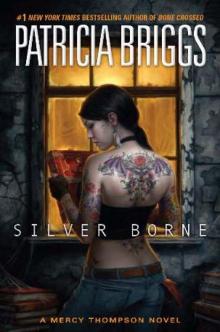 Silver Borne mt-5
Silver Borne mt-5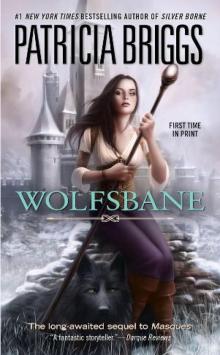 Wolfsbane s-2
Wolfsbane s-2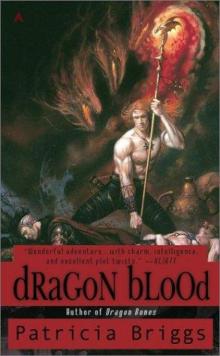 Dragon Blood h-2
Dragon Blood h-2 Iron Kissed mt-3
Iron Kissed mt-3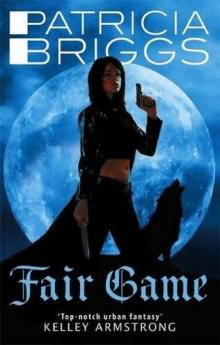 Fair Game aao-3
Fair Game aao-3 Masques s-1
Masques s-1![[Hurog 01] - Dragon Bones Read online](http://i1.bookreadfree.com/i1/04/03/hurog_01_-_dragon_bones_preview.jpg) [Hurog 01] - Dragon Bones
[Hurog 01] - Dragon Bones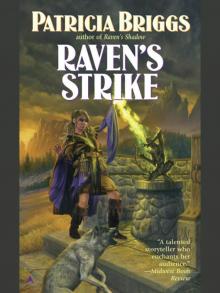 Raven s Strike
Raven s Strike Mercedes Thompson 03: Iron Kissed
Mercedes Thompson 03: Iron Kissed Bone Crossed mt-4
Bone Crossed mt-4 Blood Bound mt-2
Blood Bound mt-2![[Mercy 01] - Moon Called Read online](http://i1.bookreadfree.com/i2/04/09/mercy_01_-_moon_called_preview.jpg) [Mercy 01] - Moon Called
[Mercy 01] - Moon Called River Marked mt-6
River Marked mt-6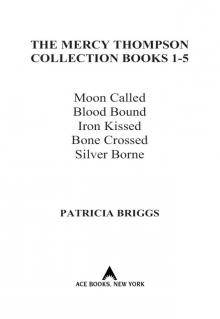 The Mercy Thompson Collection
The Mercy Thompson Collection Moon Called mt-1
Moon Called mt-1 Mercy Thompson 8: Night Broken
Mercy Thompson 8: Night Broken